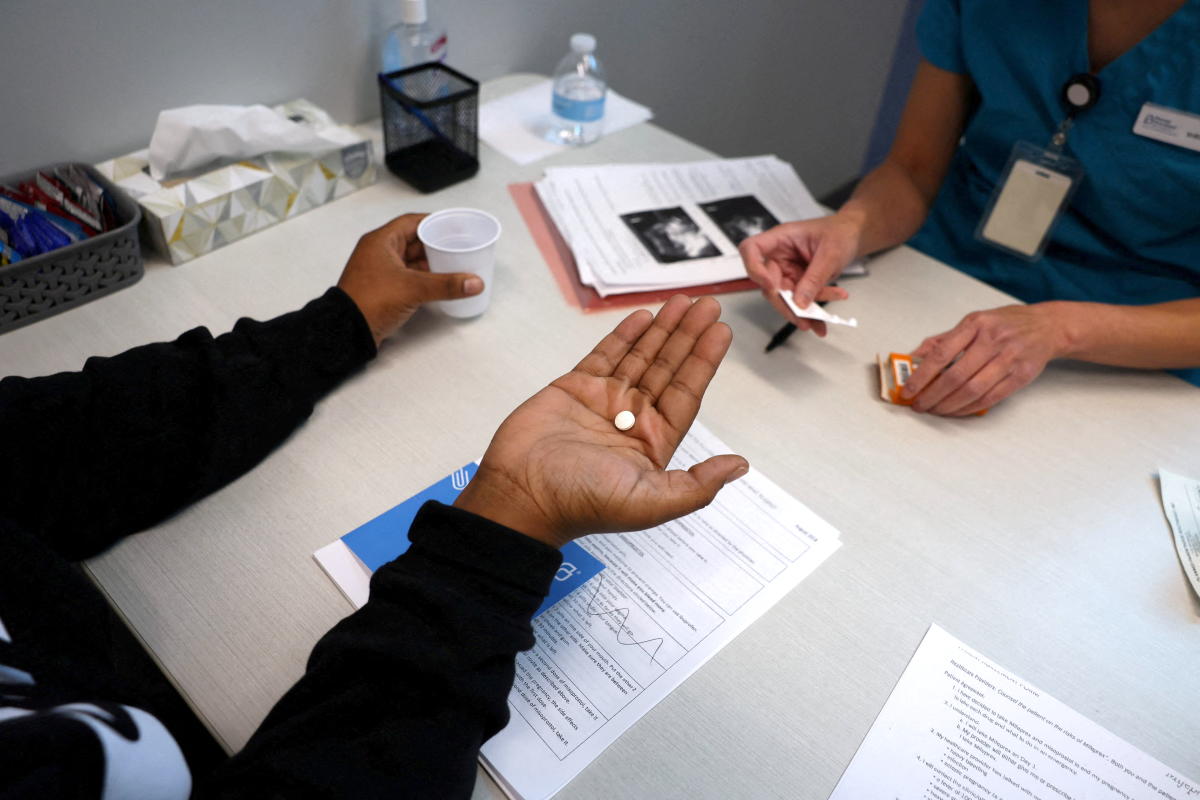The Impact Of Over-the-Counter Birth Control In A Post-Roe World

Table of Contents
Increased Accessibility and its Implications
Over-the-counter birth control offers a significant step towards improved access, particularly for underserved populations. Many women, especially those in low-income brackets, rural areas, or lacking health insurance, face significant barriers to accessing prescription birth control. These barriers include the cost of doctor visits, transportation difficulties, and long wait times for appointments. OTC birth control significantly reduces these hurdles.
The benefits are multifaceted:
- Reduced reliance on doctor visits and appointments: Obtaining birth control becomes significantly more convenient and less time-consuming.
- Greater privacy and control over reproductive health decisions: Individuals can make choices about their reproductive health without needing to involve a healthcare provider.
- Potential for improved adherence to birth control regimens: Easier access can lead to better compliance with prescribed regimens, resulting in more effective contraception.
- Increased accessibility for marginalized communities: This is particularly crucial for women in underserved communities who may face systemic barriers to healthcare access. This includes those experiencing homelessness, undocumented immigrants, and individuals facing discrimination based on race or sexual orientation.
Affordability and Economic Impact
A key advantage of OTC birth control is its potential for reduced costs compared to prescription methods. The elimination of doctor visits, prescription fees, and insurance co-pays can lead to substantial savings for individuals. This economic impact ripples outward, potentially affecting healthcare costs for the entire system. Fewer unintended pregnancies mean fewer associated healthcare costs related to prenatal care, childbirth, and potential long-term health complications.
- Comparison of costs between over-the-counter and prescription options: A detailed cost comparison would illuminate the potential savings for consumers.
- Discussion of insurance coverage and its potential role in affordability: The role of insurance in offsetting the cost of OTC birth control needs further clarification. Will insurance companies cover OTC options, and if so, to what extent?
- Analysis of the potential impact on unintended pregnancies and associated healthcare costs: Studies quantifying the reduction in unintended pregnancies through increased access to affordable birth control are critical for a comprehensive understanding of its economic impact.
Effectiveness and Safety Concerns
The effectiveness of OTC birth control varies depending on the method. While condoms provide a high level of protection when used correctly, other OTC options, such as emergency contraception, have varying effectiveness rates depending on factors like timing of administration. It's crucial to emphasize the importance of proper use and readily available information to ensure safe and effective utilization. Misinformation surrounding OTC birth control can have serious consequences, highlighting the need for accurate and accessible educational materials.
- Explanation of efficacy rates for various over-the-counter options: Clear and concise information on the effectiveness of different OTC birth control methods is crucial.
- Importance of proper use and understanding of potential side effects: Educational materials should highlight correct usage and potential side effects to maximize effectiveness and minimize risks.
- Role of education and readily available information in ensuring safe and effective use: Public health campaigns and accessible online resources are essential for educating individuals about proper use and potential side effects.
- Addressing potential misinformation surrounding over-the-counter birth control: Combating misinformation through trusted sources and fact-checking initiatives is essential to ensuring public safety.
Potential Challenges and Policy Considerations
The transition to wider availability of OTC birth control presents several challenges. Effective regulation is essential to prevent misleading advertising, ensure product safety and efficacy, and address potential concerns about age restrictions and responsible access. Policymakers and healthcare providers have crucial roles to play in navigating these complexities.
- Potential for misleading advertising or inaccurate information: Stricter regulations may be needed to prevent the dissemination of false or misleading information about OTC birth control products.
- Need for clear and accessible educational materials for consumers: Government agencies and healthcare providers should work together to develop and distribute clear and easily understandable educational materials.
- Considerations regarding age restrictions and responsible access: Appropriate age restrictions and access protocols are necessary to ensure responsible use.
- The role of government regulation in ensuring product safety and efficacy: Robust government oversight is needed to ensure that OTC birth control products meet safety and efficacy standards.
Conclusion: The Future of Over-the-Counter Birth Control
The availability of over-the-counter birth control presents both opportunities and challenges. Increased accessibility and affordability have the potential to significantly improve reproductive health outcomes, particularly for underserved populations. However, addressing concerns about safety, misinformation, and equitable access is paramount. By acknowledging both the potential benefits and challenges, we can work toward creating a future where over-the-counter birth control options contribute to improved reproductive healthcare for all. Learn more about available over-the-counter birth control options and advocate for policies that ensure equitable access to reproductive healthcare for everyone.

Featured Posts
-
 Gwen Stefani Reveals The Unexpected Secret To Her Strong Marriage With Blake Shelton
May 27, 2025
Gwen Stefani Reveals The Unexpected Secret To Her Strong Marriage With Blake Shelton
May 27, 2025 -
 Faiz Artirimlari Ecb Nin Tarifelere Iliskin Son Uyarisi Ve Analizi
May 27, 2025
Faiz Artirimlari Ecb Nin Tarifelere Iliskin Son Uyarisi Ve Analizi
May 27, 2025 -
 Kai Cenat And Ninja Clash Asmongold Offers His Perspective
May 27, 2025
Kai Cenat And Ninja Clash Asmongold Offers His Perspective
May 27, 2025 -
 Understanding Guccis Choice Of Bamboo An Examination Of Its Design Philosophy
May 27, 2025
Understanding Guccis Choice Of Bamboo An Examination Of Its Design Philosophy
May 27, 2025 -
 Florent Malouda On Osimhen A Potential Game Changer For Chelsea
May 27, 2025
Florent Malouda On Osimhen A Potential Game Changer For Chelsea
May 27, 2025
Latest Posts
-
 Tunnel De Tende Ouverture Prevue En Juin Selon Le Ministre Tabarot
May 30, 2025
Tunnel De Tende Ouverture Prevue En Juin Selon Le Ministre Tabarot
May 30, 2025 -
 Planning Your Visit To The Epcot International Flower And Garden Festival
May 30, 2025
Planning Your Visit To The Epcot International Flower And Garden Festival
May 30, 2025 -
 Epcot Flower And Garden Festival Your Essential Guide To The Best Exhibits And Activities
May 30, 2025
Epcot Flower And Garden Festival Your Essential Guide To The Best Exhibits And Activities
May 30, 2025 -
 Ouverture Du Tunnel De Tende En Juin Confirmation Du Ministre Tabarot
May 30, 2025
Ouverture Du Tunnel De Tende En Juin Confirmation Du Ministre Tabarot
May 30, 2025 -
 Experience The Epcot International Flower And Garden Festival What To See And Do
May 30, 2025
Experience The Epcot International Flower And Garden Festival What To See And Do
May 30, 2025
